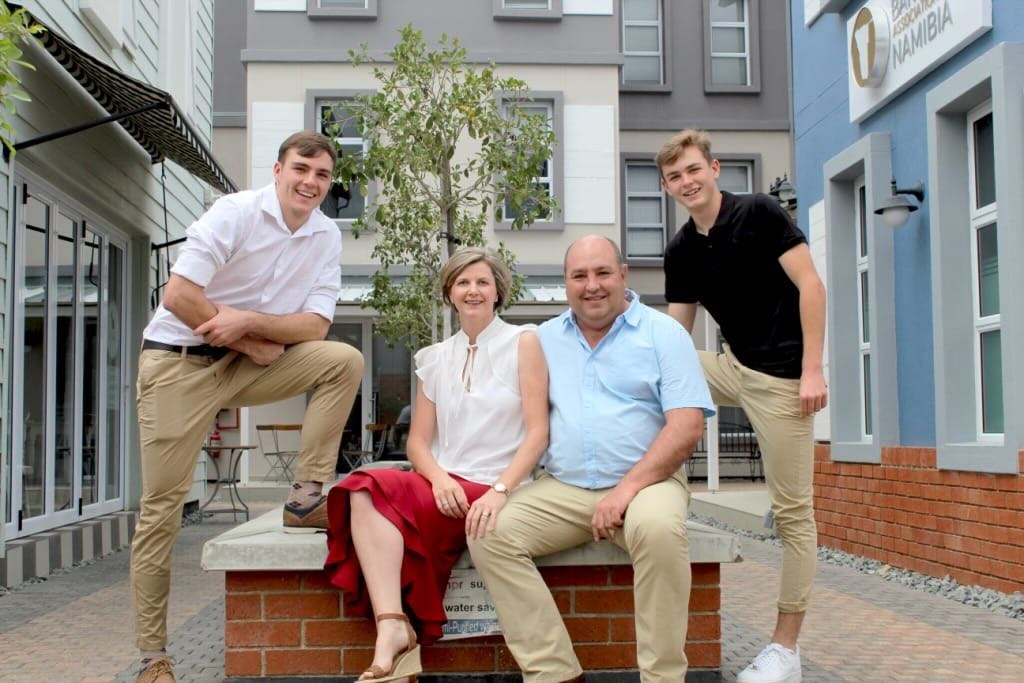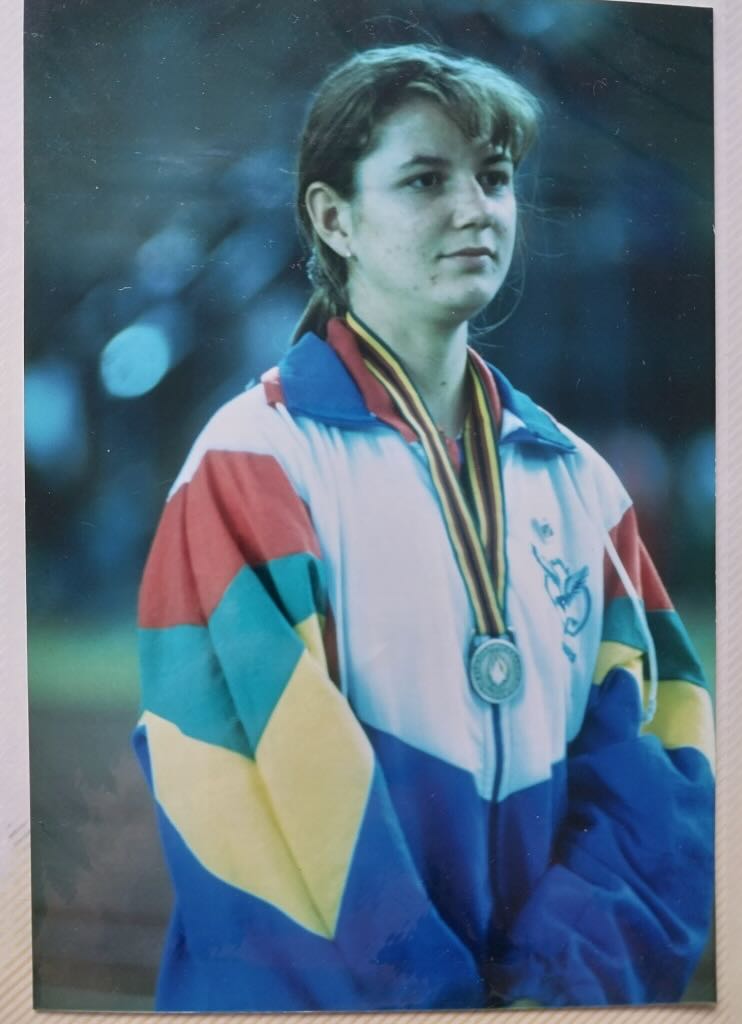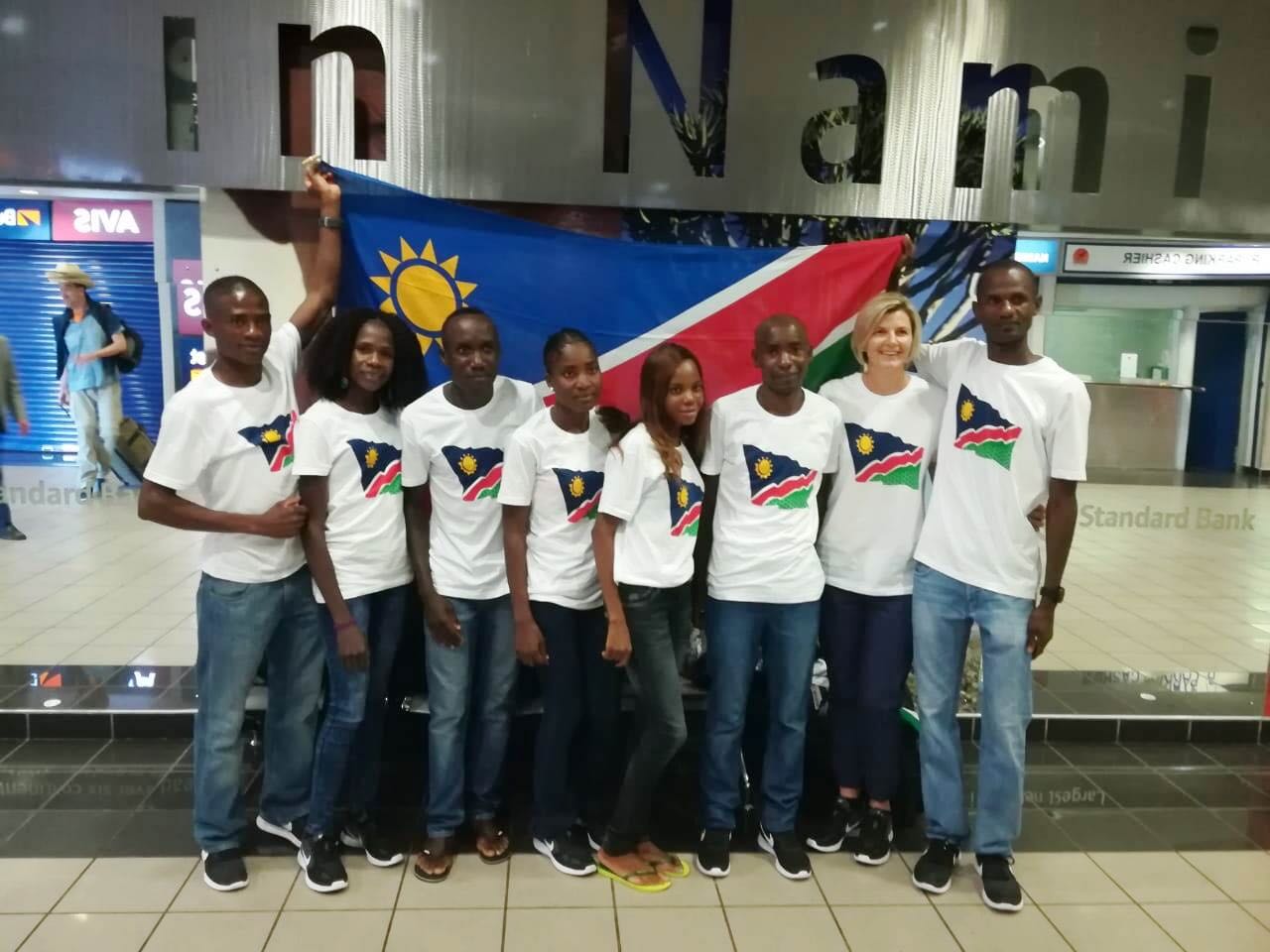Madeleine Kotze, formerly Joubert, is one of Namibia’s unsung sports heroes.
A former secretary general of Athletics Namibia and team manager of Team Namibia at the 2018 Commonwealth Games in Australia, Kotze represented Namibia at several junior and senior international track and field competitions in her heyday.
Born at Walvis Bay, she moved with her family to Gobabis, where she started her school career, before they moved on to Aranos and finally settled in Windhoek.
It was while she was in primary school that she developed her love for sport – athletics in particular.
“I started to take athletics seriously at the age of 10, while I was still at Pioneerspark Primary School in Windhoek in 1989. That is when I developed a passion for high jump and I have been competing fiercely in that event ever since,” Kotze says.
“I also played a little bit of netball but I was not really into it. I was also not too bad in the 100m sprints, although I never ended up on the podium, while I was also up among the medalists in the long jump. I was always guaranteed the silver medal.”
She joined coach Bennie Schlechter when she started to compete mainly in the high jump while at Academia Secondary School.
AthleShe also trained a little bit under coach Wimpie Louw, who left coaching shortly after she joined him to concentrate on farming.
“It was not until I started training with the renowned athletics coach Willie Gernermann that I was exposed to top class international coaching. It was a beautiful stage of my career and we were a nice group of athletes, which also included coach Letu Hamhola.
“There were other top class athletes like middle distance star Agnes Samaria and Elizabeth Mongudhi, who was the leading female marathon runner at the time and triple jumper Harry Kharuxab, to mention but a few. There was so much harmony among us.”

The Namibian Sport Council’s Most Improved Athlete of The Year for 1996 did not look back since she first represented a Namibian schools team that participated in the Sasolburg Invitational Meeting in 1993 at the age of 15.
She won her first gold in the high jump during the Africa Zone Six Athletics Meeting in Harare, Zimbabwe, in 1995, while she picked up a bronze medal at the All Africa Games, which were also staged in Zimbabwe later in the same year.
“It was really exciting travelling outside the Namibian borders to go represent my country. It really felt special to go compete against the top athletes in the region and later from the entire continent. The competition was top notch.
“There, I had to compete against athletes who were also representing their countries in big events like the World Championships and the Olympic Games, like South Africa’s late Hestrie Cloete. But it was a wonderful experience and a tremendous learning curve altogether.”
Cloete is one of only two women to have won back-to-back world titles in the high jump. She won two World Championships and two silver medals at the Olympic Games, with a high jump personal best of 2,06m, which was an African record from 2003 until 2011.
The Walvis Bay-born star was a member of the junior national athletics team at the 1996 World Junior Games in Sydney, Australia, while she also represented the Tertiary Institute Sports Association of Namibia (Tisan) in Sicily, Italy, in 1997.
Kotze hails the personal best of 1,79m she jumped during a national event meet in Windhoek and the 175m record she set at the Confederation of Universities and Colleges Sports Association (Cucsa) Games in Johannesburg, South Africa, as her two most memorable performances ever.
She was still a Grade 11 pupil at Academia at the time.
“I must say that Namibia did not have a lot of good trainers like Willie Gernermann during our time like it is the case now. After Garnermann left, there was nothing more and people like myself were forced to quit athletics,” Kotze says.
“During my time, I trained a lot on my own and constantly motivated myself to compete against myself during practice. I had to compete against athletes who were two years older. Today’s young athletes are spoiled for choice because there are so many good athletics trainers now.”
The former high jumper is enjoying a very quiet life now and her marriage to former Wanderers rugby player Jaco Kotze in 2001 has been blessed the couple with two boys.
Kotze, who is a proud holder of an executive secretary national diploma from the Namibia University of Science and Technology (Nust), is running the family butchery business, Butchers Corner, in Pioneerspark.
“Because of the limited space at the butchery, I am working from home so my mornings are always very quiet. I am basically administering the business from home. I am doing the human resource work and balancing the books of the business.
“We have a small and very manageable staff. Since I am not constantly at the business, our staff have developed a great sense of self-responsibility which comes from not having someone to constantly look after you. We initially started the business in Olympia in 2018.”

Kotze says that although she would have loved to achieve more, she is absolutely happy with what she has achieved as an athlete because high jump is a lone sport and she needed to motivate herself, although her parents were very supportive throughout her career.
She mentions Annerie Peters and Orla Venter, who is the current women’s long jump record holder, as the two toughest opponents because they were also two years her senior.
“I am not totally away from athletics because, apart from coaching the youngsters, I am also part of the Masters Athletics Club that is competing in events in South Africa as a way to have fun and keep ourselves busy,” Kotze says.
“I have been coaching for the last nine years and it is very nice to work with the youngsters. I am mostly working with the high jumpers at the Independence Stadium twice a week, on Mondays and Wednesdays. We have produced a few talented youngsters.”
Kotze, who says she is happy with how her life turned out after her athletics days because everything is going smoothly, admits that she misses the days when she used to be actively participating in athletes because she made a lot of friends.
Despite the stress and pressure going hand in hand with athletics, she always advises young athletes to go out and have fun during competitions.
“We are losing many young athletes because they cannot handle the pressure and expectations. Everyone expects something from them and that is putting a lot of pressure on the youngsters and eventually forcing them to quit before they have reached their full potential. I always tell my athletes to go out there and enjoy without putting pressure on them,” Kotze says.
Stay informed with The Namibian – your source for credible journalism. Get in-depth reporting and opinions for
only N$85 a month. Invest in journalism, invest in democracy –
Subscribe Now!







